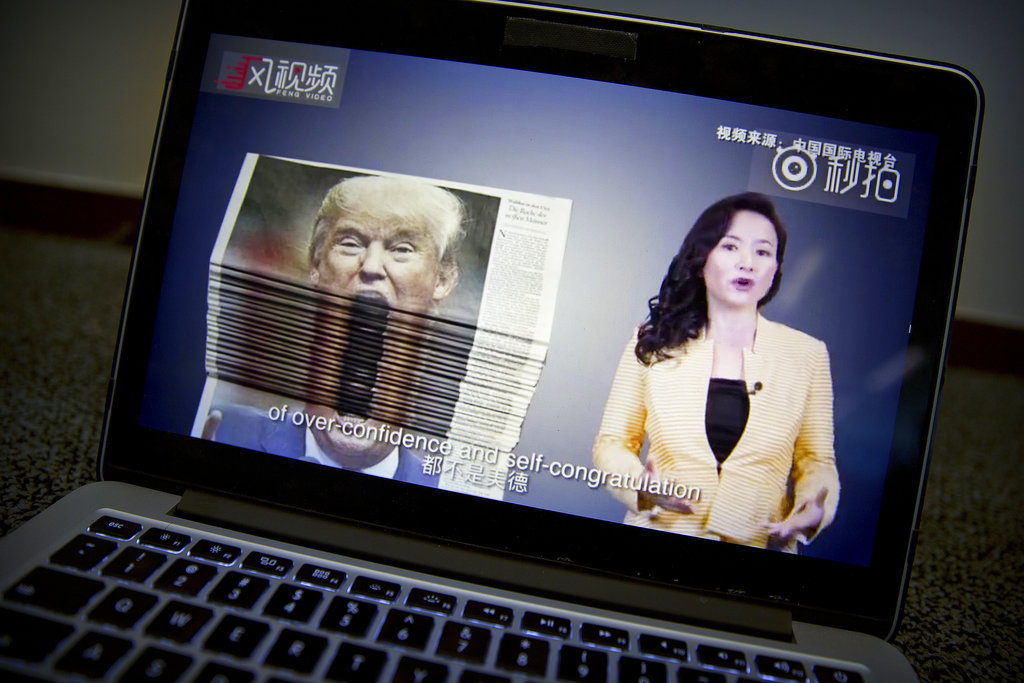
Free trade policies were promulgated during Ronald Reagan's presidency. But Reagan was not always an advocate of free trade. Japan then was regarded as a threat to the American auto industry. Reagan, supposedly an upholder of free trade, imposed a 100 per cent tariff on select Japanese electronic products.
Is history repeating itself? Donald Trump has asserted that "the deals we have with other countries are unbelievably bad... Everything's a deficit." Incidentally, the United States of America has a trade surplus with most other countries. China is an exception. The trade deficit with China is a large sum of $337 billion. Trump has responded by imposing a tariff of $50 billion on Chinese goods after announcing sanctions on steel and aluminium imports. Trump invoked a rarely used 1974 trade law to promulgate the decree. Reagan had used the law several times too.
Trump has made trade a political issue, and has incessantly attacked China for the slower growth rate of and declining jobs in the US as well as for the manipulation of the dollar. China's meteoric rise has threatened the hegemony of the US, which sees China as a strategic competitor. China, on the other hand, sees the US trade embargo as an attempt to deter its ambitious 'Made in China 2025' plan that seeks to reconfigure the Chinese economy from being labour intensive to being technologically innovative pertaining to robotics, aerospace, pharmaceuticals and such like. It is pertinent to note that the US has imposed a tariff on industries that form a part of Made in China 2025.
Industrial giants in America have long complained about intellectual property theft and conditionalities imposed by the Chinese government to rope in local manufacturers before allowing industrial bases in China. They have also alleged that intellectual property theft and technology transfers are forcing American industries to lose their competitive edge in terms of innovation and expertise. However, China has refuted these allegations.
According to the US, Made in China 2025 would put American industries at a disadvantage. However, it should be noted that many developing countries have devised policies to give an impetus to the engine of growth. However, this is not to suggest that the increasing trade deficit between the US and China should be ignored. But imposing tariffs does not really serve as a solution either.
The US-China 'trade war' is not something that will affect these two countries only. It will have global repercussions. It may even lead to changes in global production chains. The world economy is highly integrated as multinational companies have production units spread across the globe. The factors for comparative advantage are determined by the availability of raw material, technological expertise and the cost of land and labour. China is weak in manufacturing chips and relies heavily on the US. (In 2016, China imported electronic chips worth 227 billion dollars.) Barriers and tariffs may lead to disruptions in global supply chains as companies these days do not concentrate their production bases in one country only. This trend may compel American and European multinationals to revisit their investments, mergers and acquisitions, and foreign direct investments which, in turn, may ignite a reversal.
The World Trade Organization was created to ensure free trade. The rationale was to deter countries from imposing trade barriers and implementing protectionist policies. The imposition of tariffs is a myopic and knee-jerk reaction on the part of the US to contain its swelling trade deficit vis-à-vis China. The conditions put forth by the US on China, such as protecting intellectual property rights, will not yield substantial results unless China sees these policies or conditions to be favourable to growth. Barriers in a bilateral arrangement undermine the relevance of global institutions like the WTO whose members have pledged to resolve differences under the dispute settlement mechanism.










